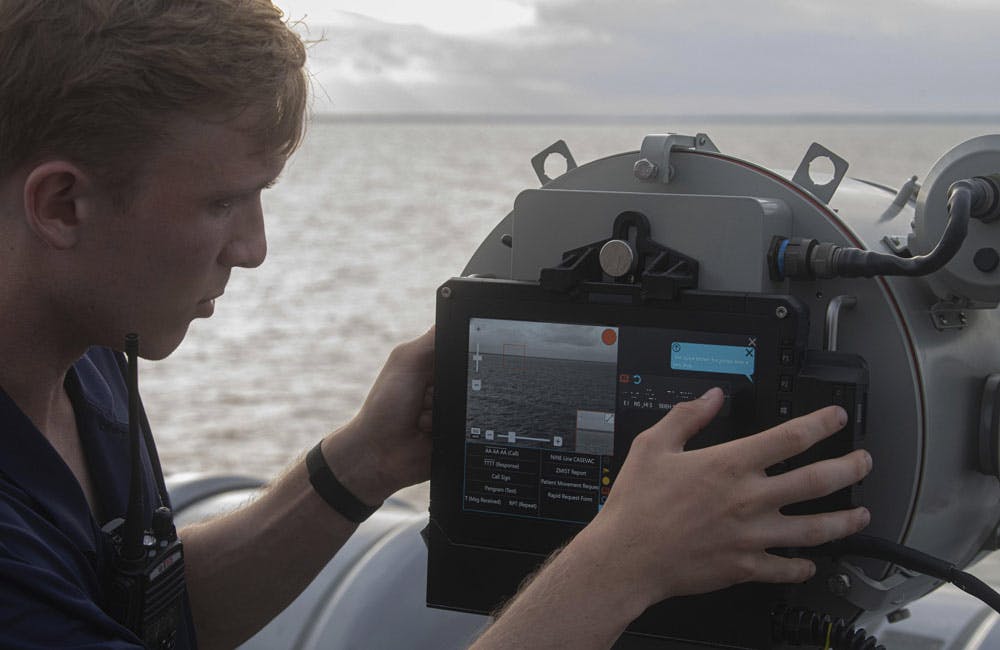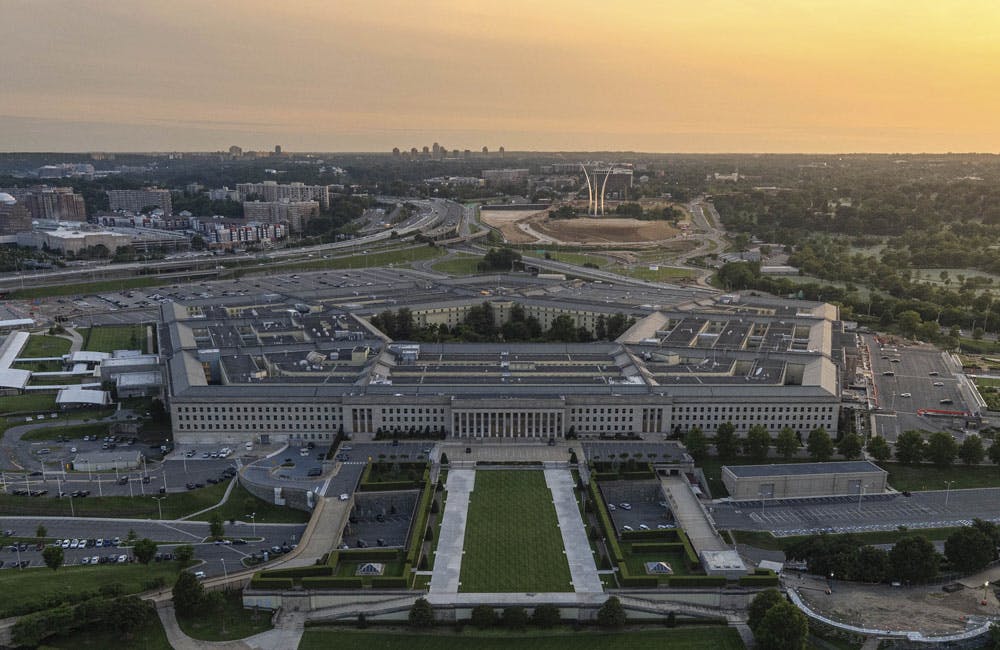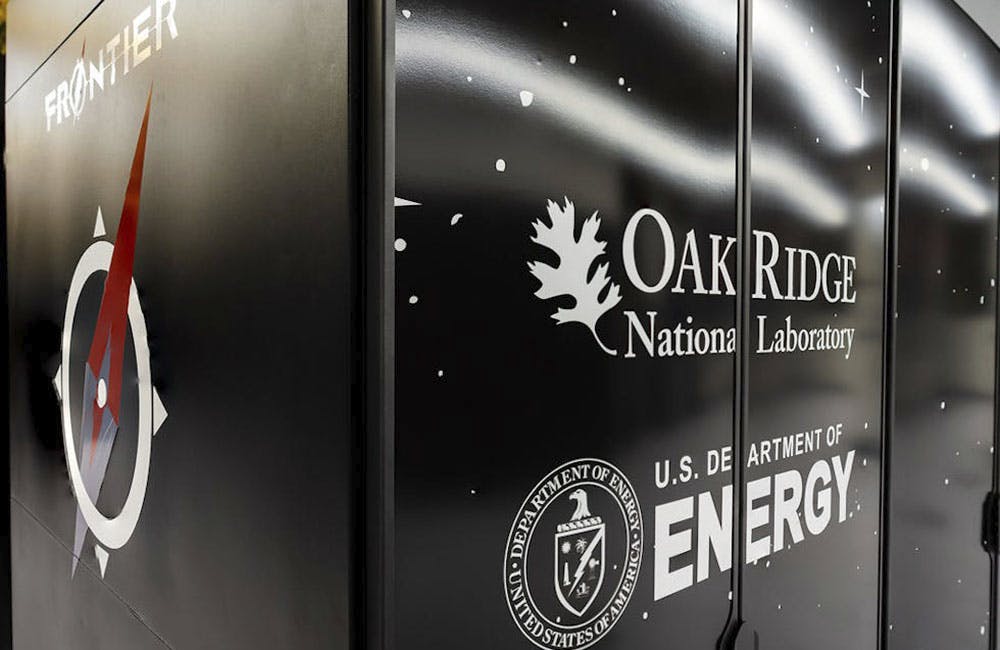AI Needs Strong Structures to Develop User Trust, Leaders Say
AI’s potential can only truly be met when guardrails and culture are in place, according to defense officials.

Defense Department must have trust and culture shifts in place before artificial intelligence can be implemented at scale, military research officials said.
Naval Research Laboratory Senior Scientist for Autonomous and Robotics Systems Glen Henshaw said at Sea Air Space Tuesday that structures need to be in place to trust AI, similar to the way that structures help train and build trust in developing Marines.
“We don’t necessarily trust the individual that walks in the door, we trust the system to create a Marine. We don’t leverage the requirements to be trustworthy entirely on the individual. We build the whole structure, and we think the structure will be trustworthy,” Henshaw said. “We’re going to have to reorganize ourselves around AI as well, we’re going to have to embed AI in a structure that we trust, and not levy the requirements will be trustworthy entirely on the AI itself.”
Coast Guard Chief Data and Artificial Intelligence Officer Capt. Brian Erickson said that rapid adaptation to data now available from sensors will be the key difference-maker between the winners and losers in the AI battle space.
“I believe in the future of the AI battle space, there is going to be a speed element and whether our adversaries or we are able to adapt faster in a scenario is what is going to matter,” Erickson said. “We’ve never had a more elegant space to play and figure this out and experiment then artificial intelligence and the technology that comes along with it.”
Colin Crosby, data service officer and deputy CDO at the Department of the Navy, emphasized that AI offers a wealth of possibilities, but it will be important to have a strong organizational culture to fully realize AI’s potential.
“How do we set in motion to get the talent either from commercially securing or developing talent in house? From a talent perspective, we’re looking at how we develop that talent,” Crosby said “What is the future state of the Marine Corps? How do we transform the Marine Corps to get to that end state of intrinsic and ubiquitous implementation of technology capabilities at the end of the rainbow?”
This is a carousel with manually rotating slides. Use Next and Previous buttons to navigate or jump to a slide with the slide dots
-

The CAIOs Leading Responsible AI Development Across Government
Since the White House's AI executive order, federal agencies are in the process of naming chief artificial intelligence officers.
7m read -

Defense Board to Pitch Solutions for Closing Tech Talent Gaps
Defense Innovation Board members cite need to modernize people management the same way government modernizes technology.
4m read -

Energy Researchers Aim For Holistic Approach to AI Issues
A new center at the Oak Ridge National Laboratory is looking at under-researched areas of AI to better understand how to secure it.
2m read -

5 Predictions for AI in Government Technology
Agencies are setting plans in motion not only to integrate AI into their enterprises, but also ensuring the data that power these systems are fair.
41m watch








